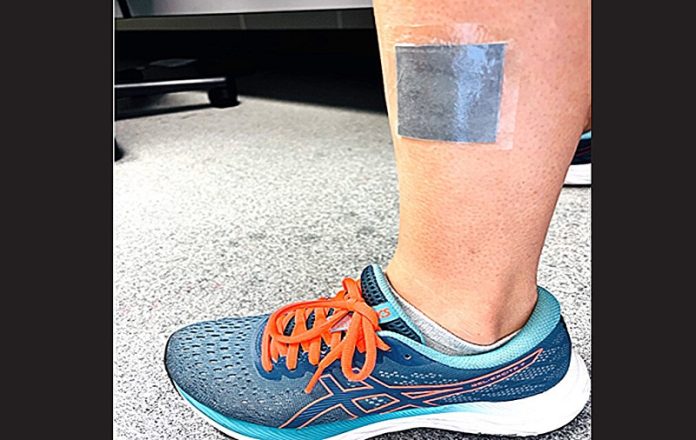
When we get wounds, we want them to heal quickly and without complications.
However, infections and other issues can slow down the healing process.
Chronic wounds are a major health concern, affecting tens of millions of Americans.
Binghamton University Professor Seokheun “Sean” Choi has developed new ideas to improve the healing process using his research on biodegradable electronics and bacteria-powered batteries.
In a recent paper published in the journal ACS Applied Materials & Interfaces, Choi and his Ph.D. students, Maryam Rezaie and Zahra Rafiee, propose innovative bandages that can prevent infections and speed up healing.
These advanced bandages use special bacteria and electrical stimulation to achieve their effects.
“Our skin naturally has beneficial bacteria that help with the immune system and healing,” said Choi, a professor at the Thomas J. Watson College of Engineering and Applied Science.
“The problem is that wounds create an environment that is perfect for harmful bacteria because it’s nutrient-rich, moist, and warm.
When these harmful bacteria form a biofilm, they are very hard to remove, which can slow down the healing process, sometimes for a year or more.”
Choi’s team improved on previous research by better integrating beneficial bacteria into the bandages. These bacteria stay dormant until they are activated by the wound, allowing for long-term storage. Once activated, they produce antibacterial agents that help fight off infections.
To enhance the antibacterial effectiveness, the team added copper oxide and tin oxide nanoparticles to the bacteria. These nanoparticles generate a small amount of electricity, which is directed to the wound area.
This electric current seems to break down the cell walls of harmful bacteria and stimulate the healing process.
The researchers tested their paper-based bandages on simulated human skin and pig skin with promising results. However, more research is needed before these bandages can be used on humans.
“The great thing about using paper is that it is disposable, so you don’t need to worry about a second infection after using it,” Choi said.
“But we need to do more work to understand how the electrical stimulation heals the wound infections. We think the electric current damages the bacterial cells, but we need to study what type of electrical stimulation, how long, and how often to make it most effective.”
In summary, these high-tech bandages show great promise for preventing infections and speeding up the healing process. With further research, they could become a valuable tool in medical treatment, helping to heal wounds more quickly and safely.
If you care about inflammation health, please read studies about turmeric: nature’s golden answer to inflammation, and what to eat to reduce chronic Inflammation.
For more health information, please see recent studies about how a plant-based diet could help ease inflammation ,and Vitamin D deficiency linked to increased inflammation.



